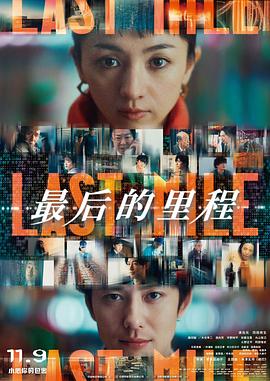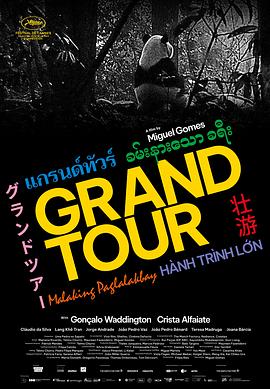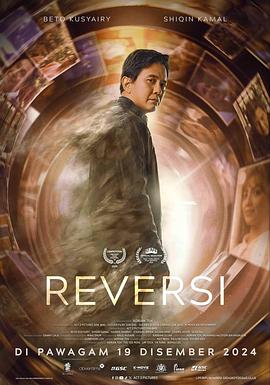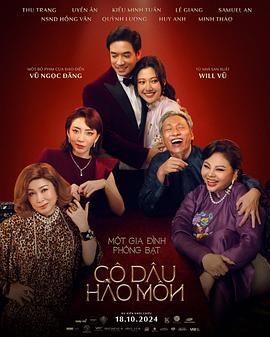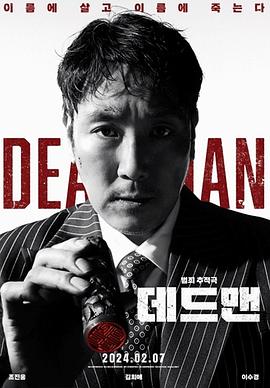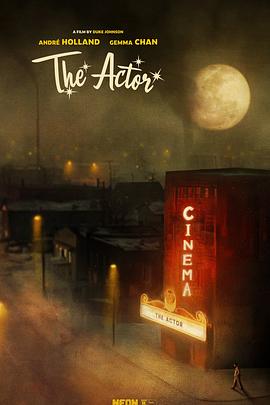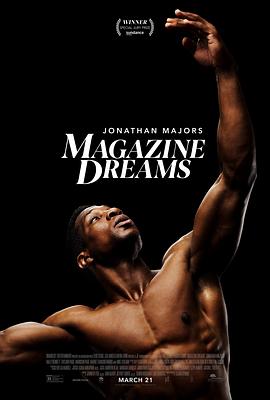- 超清线路
猜你喜欢
2024
9.0分
剧情片
满岛光 冈田将生 阿部隆史 藤冈靛 火野正平 宇野祥平 安藤玉惠 根本真阳 磯村アメリ 丸山智己 大仓孝二 酒向芳 中村伦也 仁村纱和 石原里美 井浦新 洼田正孝 市川实日子 龙星凉 饭尾和树 吉田乌龙太 药师丸博子 松重丰 绫野刚 星野源 桥本润 前田旺志郎 金井勇太 永岡卓也 麻生久美子 水泽绅吾 岩谷健司
/
11月,即将到来的全球最大购物活动之一“黑色星期五”前夜发生了一起世界知名电商网站的快递箱爆炸事件。很快,这起事件演变成了让整个日本陷入恐慌的连续爆破事件。巨大物流仓库的新任主管·舟渡艾蕾娜(满岛光 饰)和团队经理·梨本孔(冈田将生 饰)一同应对这场前所未有的危机。如何才能阻止这个遍布全球绝对无法停止的现代社会生命线的连续爆破事件?当谜题被解开时,这个世界所隐藏真面目将浮出水面。
HD中字
2024
4.0分
剧情片
莱奥·卡拉克斯 德尼·拉旺 娜斯提亚·戈卢别娃·卡拉克斯 洛雷塔·茱德凯特 安娜-伊莎贝尔·塞弗肯 皮特·安奈夫斯基 比安卡·迈达鲁诺 让-弗朗索瓦·巴尔梅 朱丽叶·比诺什 吉约姆·德帕迪约 亚当·德赖弗 叶卡捷琳娜·戈卢别娃 卡特琳娜·尤斯皮娜 米歇尔·皮科利 奥克萨娜·莎秋
/
为了一场未发生的展览,法国庞毕度中心向李欧卡霍抛出大哉问,请他用图像响应自己。向来不按牌理出牌的卡霍再度出人意表,亲自粉墨登场,以磁性画外音细述,并亲上剪辑台,透过隽永老歌、耸动字卡、怀旧相片,以及家庭录象、纪录档案与电影片段,让图像彼此撞击产生新意,不论政治、历史、个人与影史皆揉合为一,一部半自传基调的「卡霍式」散文电影于焉问世。
HD中字
2024
7.0分
剧情片
贡萨洛·沃丁顿 克里斯塔·法亚特 Cláudio da Silva 陈浪溪 Jorge Andrade 约翰·佩德罗·瓦斯 João Pedro Bénard 特丽莎·马德鲁加 Joana Bárcia 曼努埃拉·库托 迪奥哥·多瑞亚 Giacomo Leone André Lourido 阿梅瑞科·席尔娃 赵嘉妮
/
二十世纪初,大英帝国殖民官员爱德华被派驻遥远的东方,他从仰光搭火车前往曼德勒,等待未婚妻莫莉搭船到来。孰料蒸汽船即将靠岸之际,他却丢失了勇气,跳上前往新加坡的船仓皇离去。即便如此,爱德华的懦弱之举,并未让莫莉却步,反倒上演一场你跑我追之旅,也借着横渡暹罗、西贡、马尼拉、大阪、上海、重庆、成都,在陌生的远东大陆上,展开一连串的探索与追寻。
HD中字
2024
1.0分
剧情片
小斯特林·马塞尔 约翰·弗利克 Tomas Boykin 苏珊·普里弗 Micki Jackson 尼克·海曼 Sean Heyman Aaron Phifer Brian Burke Micah Fitzgerald 沙里夫·沃尔特斯 David Willis Joseph Lopez Josh Harp Shelby Sulak Alyssa Brayboy Robin D. Stanton
/
一份不祥的求助信被传到了20世纪80年代的一家邮局里,将一名死信调查员与一名被绑架的键盘技术员联系起来。
HD中字
2024
10.0分
剧情片
米娅·塔里亚 Pascale Kann 拉卡·塔克雷尔 Cal O'Driscoll Barry John Kinsella 尼亚姆·莫里亚蒂 肖恩·康奈兰 Amelia Valentina Pankhania
/
故事讲述两个关系并不好的姐妹,改编自黛西·约翰逊2021年出版的同名小说
HD中字
2024
4.0分
剧情片
This film tells the story of a husband's undying love for his wife and son, who goes to great lengths to correct his past for a better future.
HD中字
2024
3.0分
剧情片
1939年,希特勒的军队关闭了边境,85名美国传教士在德国为他们的教会服务。这些传教士逃离纳粹德国是现代摩门教历史上发生的最戏剧性的事件之一。
HD中字
2025
2.0分
剧情片
HD中字
2024
9.0分
剧情片
HD中字
2025
3.0分
剧情片
HD中字
2023
9.0分
剧情片
乔纳森·梅杰斯 哈里森·佩吉 哈里特·桑塞姆·哈里斯 海莉·贝内特 迈克尔·奥赫恩 泰勒·佩姬 布拉德利·斯泰克尔 克雷格·卡科夫斯基 桑尼·瓦利森蒂 Justin Cuomo Peter Ivanov 马克·史密斯 Kimberly Christian 戴恩·多诺休 Jodi Bianca Wise Andrea Figliomeni Alfretz Costelo 蒂姆·马丁·格里森 Ezra
/
聚焦有抱负的健美运动员基利安·马多克斯,他在探索名声和暴力的过程中努力寻求人际关系,没有什么能阻止他成为超级巨星的梦想,即使被医生警告:他的追求将对身体造成永久性伤害。
HD中字
《欧洲的某个地方》剧情介绍
星空影视网提供影视作品欧洲的某个地方高清全集在线观看的影视全集网,剧情片《欧洲的某个地方》全集作品的导演是Radványi Géza ,由Artúr Somlay Miklós Gábor Zsuzsa Bánki 主演,欧洲的某个地方在豆瓣的评分为6.0,本片由小编于2025-02-01 18:12更新,希望大家喜欢,可以把《欧洲的某个地方》推荐给你朋友,本作品的地址为 https://www.3vm.net/3vm/index/29862.html
《欧洲的某个地方》简介: Somewhere in the remote region, the war ends. In the midst of ruined cities and houses in the streets, in rural hamlets, everywhere where people still live, are children who have lost their homes and parents. Abandoned, hungry, and in rags, defenseless and humiliated, they wander through the world. Hunger drives them. Little streams of orphans merge into a river which rushes forward and submerges everything in its path. The children do not know any feeling; they know only the world of their enemies. They fight, steal, struggle for a mouthful of food, and violence is merely a means to get it. A gang led by Cahoun finds a refuge in an abandoned castle and encounters an old composer who has voluntarily retired into solitude from a world of hatred, treason, and crime. How can they find a common ground, how can they become mutual friends? The castle becomes their hiding place but possibly it will also be their first home which they may organize and must defend. But even for this, the price will be very high. To this simple story, the journalist, writer, poet, scriptwriter, movie director, and film theoretician Béla Balázs applied many years of experience. He and the director Géza Radványi created a work which opened a new postwar chapter in Hungarian film. Surprisingly, this film has not lost any of its impact over the years, especially on a profound philosophical level. That is to say, it is not merely a movie about war; it is not important in what location and in what period of time it takes place. It is a story outside of time about the joyless fate of children who pay dearly for the cruel war games of adults. At the time it was premiered, the movie was enthusiastically received by the critics. The main roles were taken by streetwise boys of a children's group who created their roles improvisationally in close contact with a few professional actors, and in the children's acting their own fresh experience of war's turmoil appears to be reflected. At the same time, their performance fits admirably into the mosaic of a very complex movie language. Balázs's influence revealed itself, above all, in the introductory sequences: an air raid on an amusement park, seen in a montage of dramatic situations evoking the last spasms of war, where, undoubtedly, we discern the influence of classical Soviet cinematography. Shooting, the boy's escape, the locomotive's wheels, the shadows of soldiers with submachine guns, the sound of a whistle—the images are linked together in abrupt sequences in which varying shots and expressive sharp sounds are emphasized. A perfectly planned screenplay avoided all elements of sentimentality, time-worn stereotypes of wronged children, romanticism and cheap simplification. The authors succeeded in bridging the perilous dramatic abyss of the metamorphosis of a children's community. Their telling of the story (the scene of pillaging, the assault on the castle, etc) independently introduced some neorealist elements which, at that time, were being propagated in Italy by De Sica, Rossellini, and other film artists. The rebukes of contemporary critics, who called attention to "formalism for its own sake" have been forgotten. The masterly art of cameraman Barnabás Hegyi gives vitality to the poetic images. His angle shots of the children, his composition of scenes in the castle interior, are a living document of the times, and underline the atmosphere and the characters of the protagonists. The success of the picture was also enhanced by the musical art of composer Dénes Buday who, in tense situations, inserted the theme of the Marseilaise into the movie's structure, as a motive of community unification, as an expression of friendship and the possibility of understanding. Valahol Europaban is the first significant postwar Hungarian film. It originated in a relaxed atmosphere, replete with joy and euphoria, and it includes these elements in order to demonstrate the strength of humanism, tolerance, and friendship. It represents a general condemnation of war anywhere in the world, in any form.
